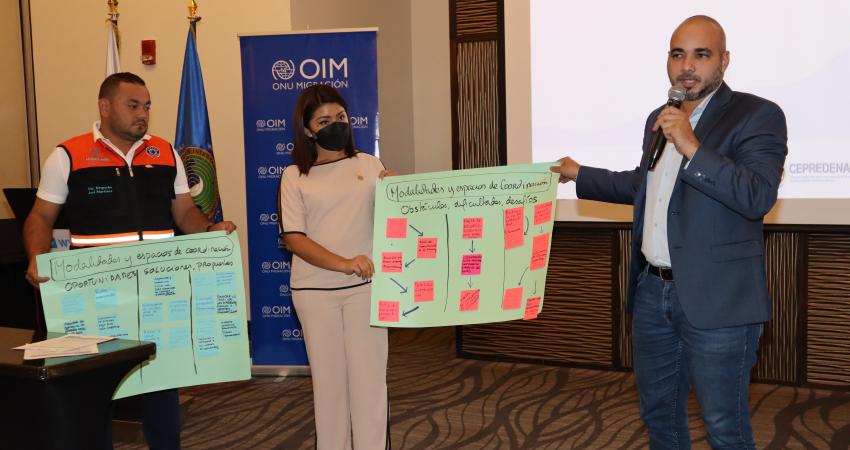Mexico, Central America and the Dominican Republic Prepare to Address Climate Change-Driven Migration Crisis

Panama City, Panama. June 30, 2022. It is estimated that by 2050, Mexico and Central America could have 3.9 million migrants due to climate change, which would represent 1.19% of the region's population1. As a result, it is essential to strengthen the capacities of relevant government and regional agency personnel in aspects related to migration driven by climate change and other environmental factors.
This was the main purpose of the Regional Workshop on Migration Crises and Migration in Contexts of Disasters and Climate Change, a participatory workshop organized by the International Organization for Migration (IOM) with the support of the Coordination Center for Disaster Prevention in Central America and the Dominican Republic (CEPREDENAC).
The event took place in Panama City on June 28-29, 2022, with the participation of government staff from Mexico, Guatemala, Honduras, El Salvador, Costa Rica, Panama and the Dominican Republic, in addition to representatives from the Central American Commission for Environment and Development (CCAD), the Council of Women Ministers of Central America and the Dominican Republic (COMMCA) and the Platform on Disaster Displacement.
"We are at a point where migration and vulnerability to disasters coincide, in a context characterized by high environmental and natural instability, factors that require immediate and special attention in the short term," said Claudia Herrera Melgar, executive secretary of CEPREDENAC, in her opening remarks.
"The impact of hurricanes ETA and IOTA, the massive migratory flows in the region, the displacements caused in Central America by the dry corridor are just some examples of how migration and displacement of people due to crises, environmental degradation and climate change are often connected," explained Michele Klein-Solomon, IOM Regional Director for Central America, North America and the Caribbean. "The issue requires regional management and the capacity of State authorities to respond to the needs of migrants," she added.
Through lectures and plenary presentations, participants discussed the relationship between migration and crisis situations driven by environmental factors and climate change, how to incorporate migrants in emergency preparedness and response, and how to improve coordination on the issue. In addition, regional priorities for the upcoming COP27 were discussed.
"Climate change is already entailing extreme events and migration derived from these events is something that concerns us all and we must address them from a risk management perspective," explained Luis Alonso, Director General of Civil Protection, Disaster Prevention and Mitigation of El Salvador." This is an opportunity to create alliances that allow us to make synergies on issues such as temporary shelters, to be able to manage emergencies whatever their origin."
The event concluded with the identification of thematic priorities for all participating countries. This activity was carried out under the IOM Western Hemisphere Program, funded by the Bureau of Population, Refugees and Migration.
[1] https://publications.iom.int/books/la-movilidad-humana-derivada-de-desastres-y-el-cambio-climatico-en-centroamerica
